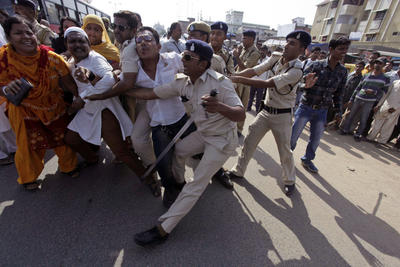Along with gold, oil imports cause a big drain on the foreign exchange reserves. India’s crude oil import bill jumped 40 per cent to US$140 billion in 2011–12. While acknowledging the growth of transport and industrialisation, there is still scope for curbing the use for passenger vehicles.
As the fuel bill rises, so does the passenger car market that, despite a slump, continues to introduce new models. Preference for small cars is giving way to families’ wishes for things big.
After decades of low consumption, when simplicity, socialism and self-reliance were the watch-words, the Indian consumer’s appetite, post reforms, knows no bounds. Consumer is now the king.
The upper middle-class consumers may afford their expensive goodies at an individual level, but certainly not as a nation. India cannot be an island of goodies, of foreign education, of medical treatment abroad, with the global downturn and the second Asian financial crisis coming. Also, the impending war in Syria raises frightening prospects of crude oil costing over US$150 a barrel.
The rupee lost 25 per cent of its value in the last two months and could hurtle down further. Economic stress is showing.
Kingshuk Nag, writing in the Times of India warns: ‘As a nation, we are living beyond our means and you can’t continue doing so unless we want India to crash (and not the rupee alone). That is exactly what is happening: the crash of the rupee is a symptom of the problems that ail the economy’.
However, this is unfashionable talk in a poll-bound nation where the blame game is the order of the day. No economist, no politician, no TV celebrity talks of the need for austerity. They only speak of the curbs the Reserve Bank of India is putting or should put to arrest the decline of the economy’s growth and of the rupee.
This adds up to government-bashing that is not without justification but cannot be the sole answer and remedy.
Everyone is fighting shy of angering the middle class that dominates the media and the social media intercourse. The not-so-remote control is with the India Inc.
Prime Minister Manmohan Singh has indicated measures to curb the rising gold imports, an undoubtedly unpopular measure, whoever takes it, since gold is used from cradle to coffin. But main opposition Bharatiya Janata Party (BJP) has opposed these curbs and any attempt by the government to acquire or borrow gold from temples or from individuals through bank schemes. In the surcharged atmosphere, the issue is being made one of ‘faith’ and of ‘family pride’.
Singh keeps reducing subsidies on fuel, making it expensive for the public. But drastic measures — the ‘hard’ decisions on economic reforms that he talks of — are unlikely by a government that is facing flak on numerous issues.
The reality is that the process of reforms has been skewed in favour of the city and against the countryside.
It has promoted the culture of consumption without any breaks. And Singh, who began it all, is now riding a tiger that he cannot dismount. This dilemma will trouble every future prime minister/finance minister.
Indians need to prioritise their spending. Just-retired RBI governor D. Subbarao chastised the finance minister, P. Chidambaram, adding, in parentheses, that the rupee crisis owed more to profligate spending in India than to any decision taken in America, which has been the government’s stock explanation.
The crisis has gone well beyond a nation’s gross domestic product. The only way to save the rupee and to prevent its free fall is to start practising swadeshi (self-reliance) all over again. But this is a cry in the wilderness.
Societies construct their economic institutions. However, politics determines their nature and functions, allowing some classes to become exploitative or extractive. Moving from socialist welfarism to ‘reforms with human face’, the Indian experiment has, willy-nilly, served interests and built riches of those who command levers of power and dominate over political institutions.
No longer a favourite of the privileged classes, the ruling Indian National Congress, at this 11th hour, is seeking to bypass them by pushing populist measures to help the rural poor.
Lok Sabha, the Parliament’s lower house, has passed the Food Security Bill to provide subsidised food grains to 67 per cent of the population, estimated to cost US$20 billion. This is credited not so much to Singh but to the Indian National Congress president, Sonia Gandhi. The media calls it a possible ‘game changer’ in the elections. The Opposition, although angry and dismayed, could not or did not block it.
Their anger is greater at the Land Acquisition Bill. It provides farmers a safeguard against their land being purchased cheaply for commerce and industry, a measure that has angered the media, who label it as socialist, and the corporate class that see the acquiring of land expensive and procedures, cumbersome.
Both are intensely debatable measures. Time will tell if the twin measures brighten the ‘human face’. This debate will transcend the parliamentary polls. And no matter who wins or loses, it will determine the direction of India’s course.
Mahendra Ved is a New Delhi-based writer and columnist.
This article was originally published here in the New Straits Times.

